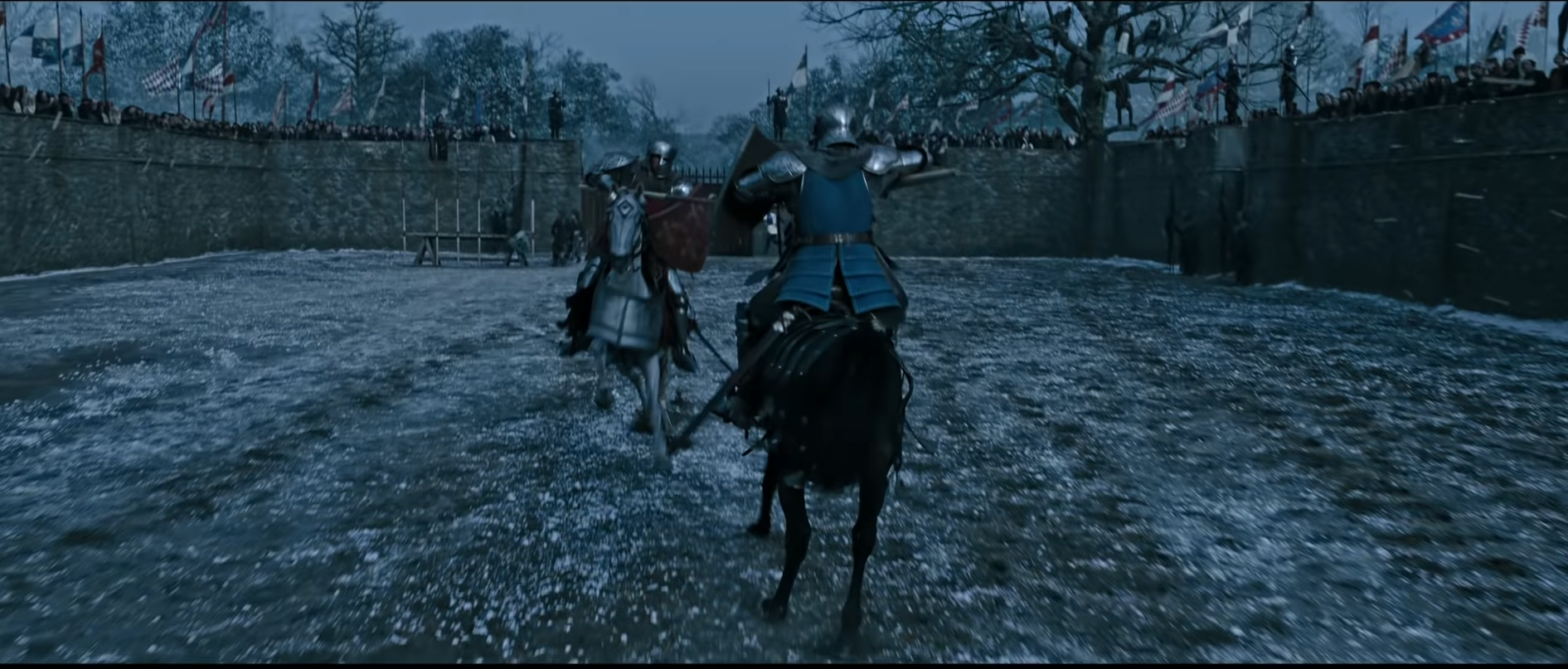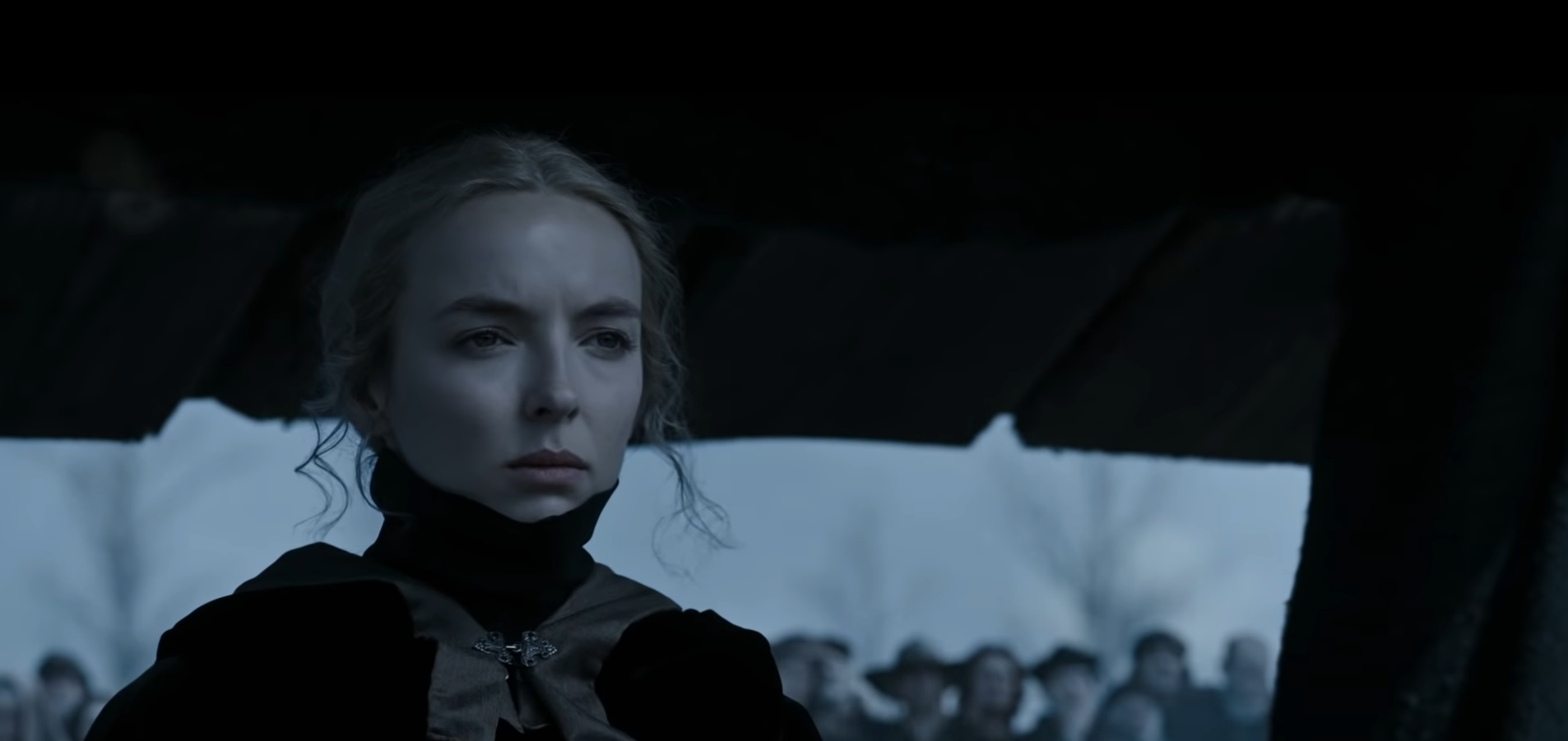Directed by Ridley Scott, ‘The Last Duel’ is a historical film that showcases the duel between Jean de Carrouges (Matt Damon) and Jacques Le Gris (Adam Driver), the last sanctioned duel by the Parliament of Paris. Carrouges’ wife Marguerite de Carrouges (Jodie Comer) accuses Jacques Le Gris of rape. Enraged, Carrouges lay charges of rape against the man in the court of Count Pierre, only to get dismissed. The film then follows Carrouges’ attempts to avail justice for his wife through a trial by combat, sanctioned by the Parliament.
‘The Last Duel’ is not only a retrospection of 14th century France but also an exploration of the gender norms and disparities in gender privileges that prevailed at that point in time. The film offers a strong premise to understand the characters’ conflicts with respect to history and gender, making the film a lot more relevant than the typical historical films depicting the vanity of masculine power. As the film progress into Marguerite’s future, one can’t help but wonder about the authenticity of these characters and events, inspiring us to mine the truth behind ‘The Last Duel.’ Let’s take a look!
Is The Last Duel Based on a True Story?
Yes, ‘The Last Duel’ is based on a true story. The screenwriting trio – Nicole Holofcener, Ben Affleck, and Matt Damon – adapted the screenplay from Eric Jager’s 2004 book ‘The Last Duel: A True Story of Trial by Combat in Medieval France.’ The book explores the truth behind Carrouges’ trial by combat to defeat Le Gris in multiple dimensions, with the help of substantial evidence and contestations.

Eric’s book starts with a detailed account of the events that led to the trial and discusses the chronology of Carrouges’ strive to secure a duel to kill the assaulter of his wife. As far as historical accounts are concerned, in 1386, Marguerite accused Le Gris of raping her at her mother-in-law’s chateau when her husband was away traveling. Le Gris and Carrouges, former friends, were in severe tension when the incident happened, enraging Carrouges beyond measure.
Carrouges approached Count Pierre, Le Gris’ master, only to be ridiculed as the Count dismissed his allegations saying, “Marguerite must have dreamed it.” He then advanced to the Parliament and convinced them of the gravity of his allegations, leading to an investigation on the matter. Le Gris provided testimonies and alibis to prove his innocence but weren’t enough for the investigation to reach a conclusive end.
With the absence of concrete evidence, the Parliament sanctioned a trial by combat between Carrouges and Le Gris. The latter got knighted to equal the status of the participants. The proposition of the duel was then explained, if Carrouges wins by killing Le Gris, Marguerite will be off the charges of the false allegation, and if Le Gris wins, she will be burnt alive at a stake. Carrouges emerged as the winner as he killed Le Gris, freeing Marguerite.
In a press conference at Venice Film Festival, co-writer Ben Affleck explained the foundation of the film’s writing, “This is a true story, one that people didn’t know. This is an incredible woman from history who is an early-known recorded person who spoke out against a powerful man who assaulted her.” Affleck added, “Naturally, that seemed relevant and also incredibly thrilling, and a story that could generate a lot of catharsis and empathy and one that I hoped would develop in the viewer a sense of compassion and, we hope, the idea that we might look at one another in a different way.”
Like many historical accounts of the distant past, the events that led to the duel of Carrouges and Le Gris are also disputed highly, with historians and chroniclers contesting Le Gris’ innocence. ‘Saint-Denis Chronicle’ by Michel Pintoin contested Le Gris’ death by stating that Le Gris was innocent and the real assaulter confessed to the crime when he was condemned to death for a different reason. Jean Juvenal des Ursin’s ‘Histoire de Charles VI’ also stands by Le Gris’ innocence as the account states that the real assaulter confessed to the crime on his deathbed.
It is important to note that both accounts haven’t been corroborated with evidence and are 15th-century contestations, which are far from truth without evidence. Although such reports haven’t succeeded in clearing the smoke around the truth, they might have resulted in ending the trial by combat practice for good. The disputes regarding the truth behind Le Gris’ assault even after the combat might have made the Parliament end the practice, making the combat between Carrouges and Le Gris the last duel in France.
Read More: Best Historical Movies of All Time


You must be logged in to post a comment.